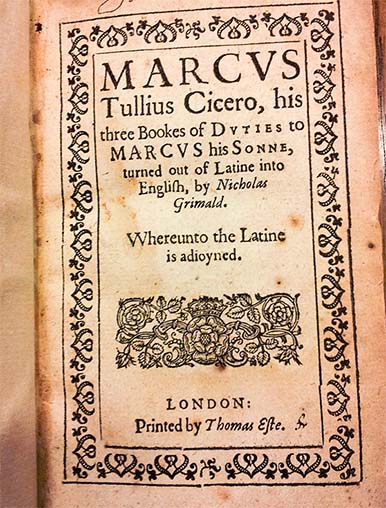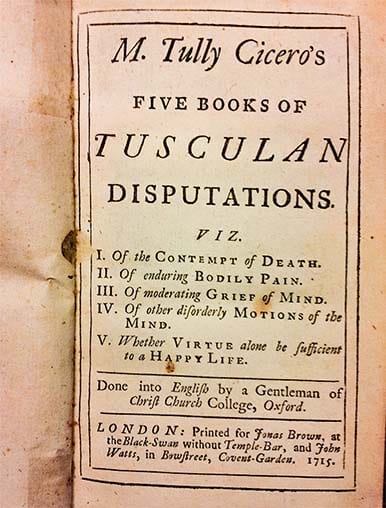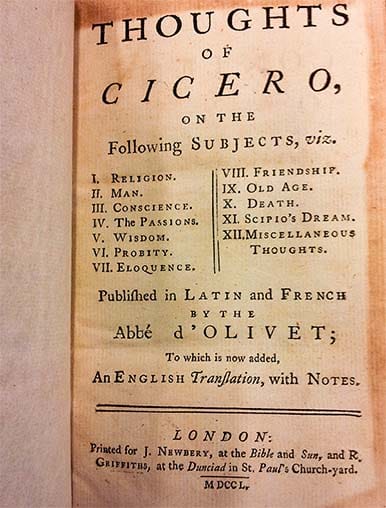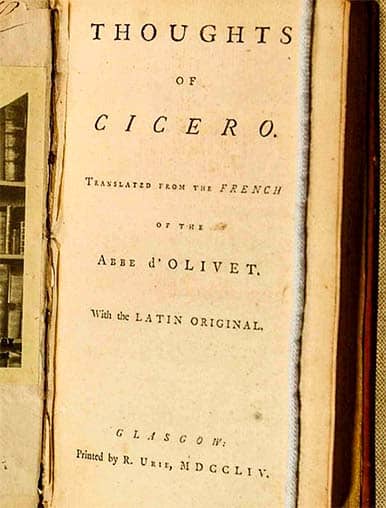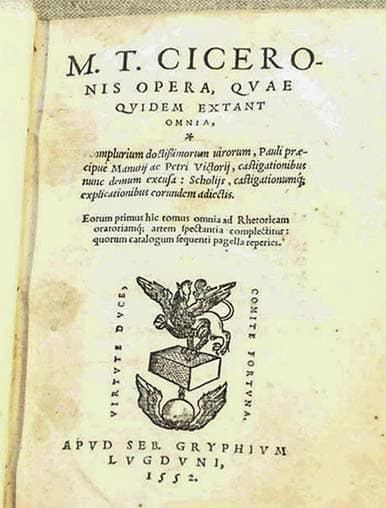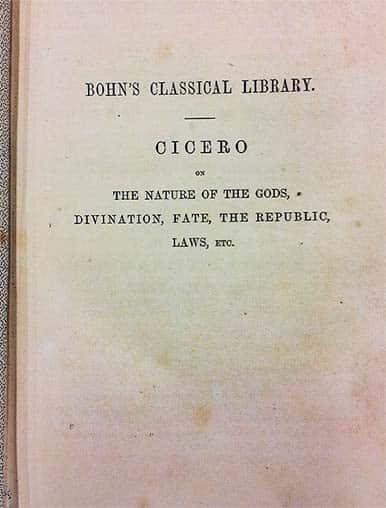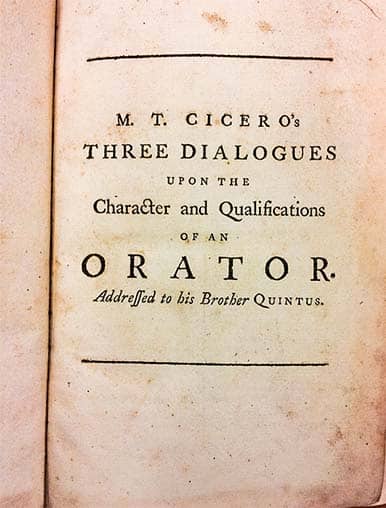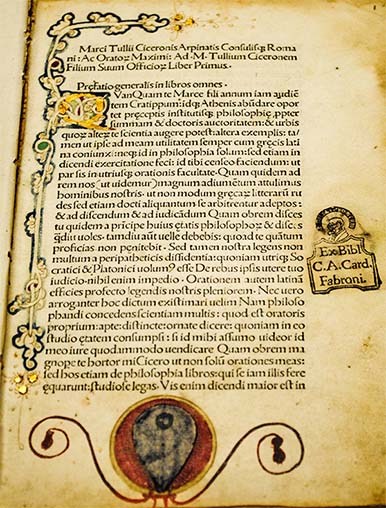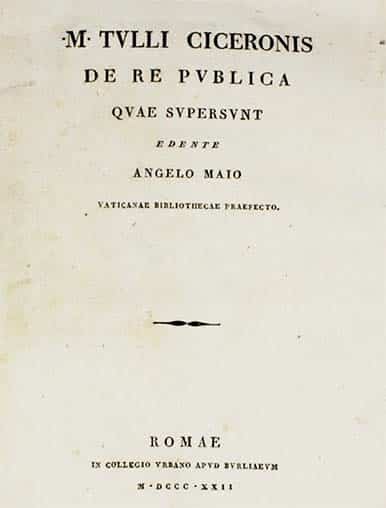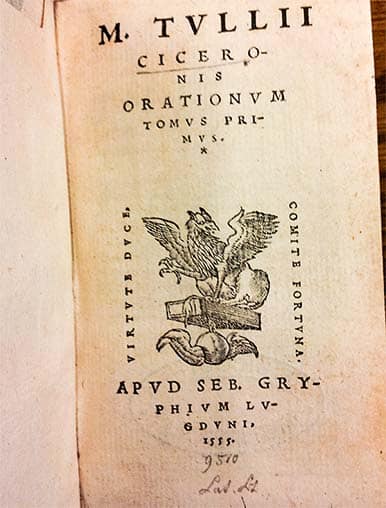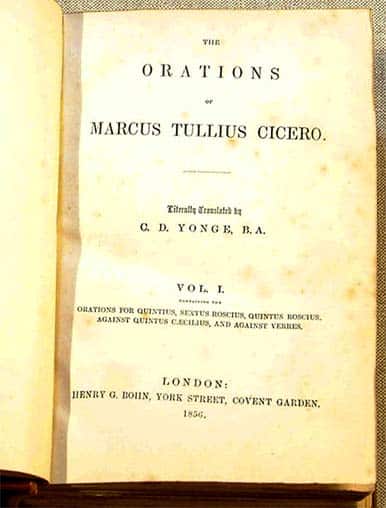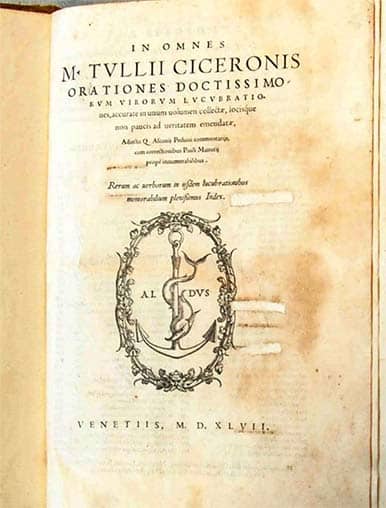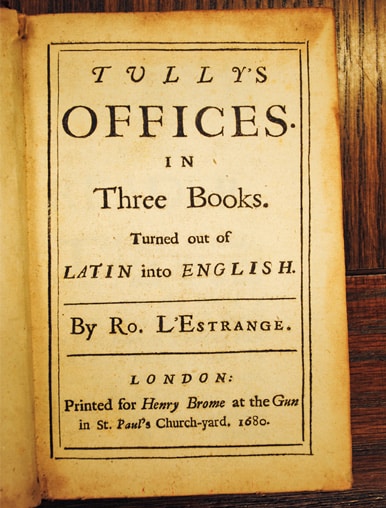REMNANT TRUST COLLECTION
De Officiis with Paradoxa stoicorum
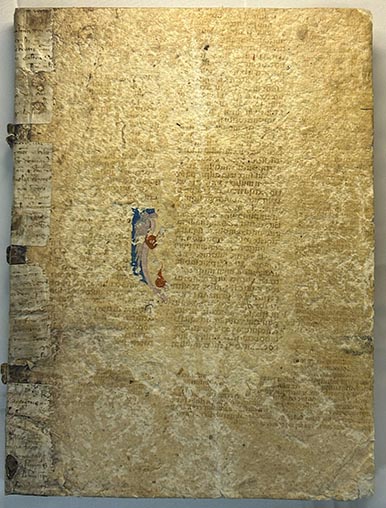
Category: Philosophy and Politics
By Cicero
Published in 1446
Reference #0943
Manuscript in Latin, on paper. This manuscript of Marcus Tullius Cicero’s “De Officiis,” was prepared in 1446 for Nicolai Renciade by an unknown scribe. Renciade was a student of Giovanni de Juvianello, a professor of grammar, rhetoric, and poetics in Viterbo. The volume also contains three additional works of Cicero: “Paradoxa stoicorum,” an introduction to Stoicism; “Laelius seu de amicitia,” a dialogue on friendship; and “De senectute,” a discourse on aging and death.
Cicero wrote “De Officiis” in under four weeks in late 44 BCE; shortly before he was assassinated. The treatise was written to define the ideal way to live. Cicero believed that a natural law directs both humans and gods. He also wrote that the way to an ideal life is to follow nature, understanding, and politics and to avoid indulgence and idleness.
“De Officiis” was enormously influential from the Middle Ages onward. It inspired Augustine of Hippo and Thomas Aquinas and served as the moral authority during the Middle Ages. In later centuries, “De Officiis” also impacted Erasmus and Voltaire.

